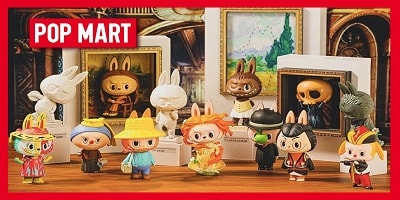Pop Mart, established by Wang Ning, has expanded dramatically to become a market worth around $7 billion (£5.3 billion), which is a lot.
The company sells collectible data for about $8 each in packaging that doesn’t enable buyers and see what’s inside.
Mr. Wang owns about 50 percent of Pop Mart following the Hong Kong stock market launch on Friday, and now has a net value of $3.2 billion, according to Forbes.
Pop Mart, based in Beijing, raised $674 million from share sales, which it will use to open new stores and expand overseas. Its sales increased 100 percent higher in early trading after the stock market debut.
“Chinese are depressed about long hours but face low pay at work and unaffordable housing prices, so they look for inexpensive forms of entertainment and purchases,” said Shaun Rein, Managing Director of China Market Research Company.
Pop Mart sells its goods in 21 countries outside of China and claims that its consumers are mainly between 18 and 35 years of age, while 75% are female.

The industry leader, Pop Mart, witnessed its sales increase to 1.68 billion yen, which comes out to 256.8 million dollars. It has licensing arrangements with Walt Disney and Universal Studios and also offers goods from third-party suppliers.
China’s millennials spend more on mystery toys than any other interest, like designer shoes and e-sports, according to the Tmall e-commerce platform study, which is owned by Alibaba.
The research company Frost & Sullivan estimated that sales of pop toys, a blend of pop culture and trendy content, amounted to 20.7 billion yuan in China last year.
Surprise toy boxes trace its origins back to Japanese vending machine capsule models known as Gashapon.
The main product of Pop Mart is the mystery toy boxes, which holds one figurine from various collectibles, while the best one that sold the most is Molly doll.
